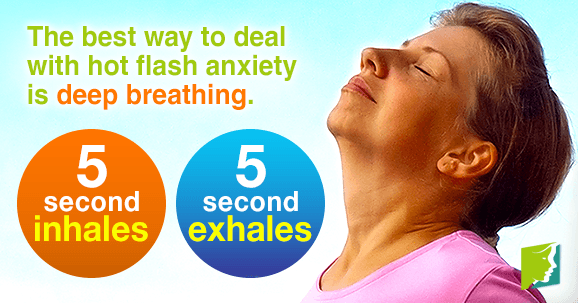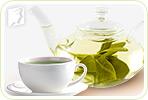There are many upsetting symptoms of hot flashes, which can be tough to resolve. However, they are interconnected; therefore, managing one can greatly help to relieve the others. Here are some ways to help halt each of your hot flash symptoms.
Sweating
Excessive sweating is very common during hot flashes. Due to shifts in estrogen levels, your body is receiving messages to cool you down. Sweating is your body's mechanism for cooling itself down as quickly as possible. Thus, you are often soaked during and after a hot flash.
The obvious solution is deodorant. However, there is a trick: do not apply deodorant when your skin is damp or wet with sweat. Wait until your underarms are dry before you apply deodorant.
Further, wear layers. Sweating is horrible if you are trapped in a light-colored long sleeve sweater. Dress in a tank top, t-shirt, light sweater, and jacket if needed. This way, you can strip layers when the hot flash begins. Dark colors will make the sweat less visible, so try to avoid white. Also, make sure the clothing is made of a loose and breathable fabric, such as cotton.
Redness
During a hot flash, the blood vessels dilate as if you were just doing an intense workout. It will make you extremely flushed, especially in the cheeks, neck, and chest. It can appear evenly or blotchy, and is often one of the most visible symptoms of hot flashes.
One thing you can do is carry a very light scarf to cover chest redness if it is a concern of yours. Otherwise, avoid excess consumption of caffeine, spicy food, and alcohol (particularly red wine), as they significantly increase blood flow and can also trigger a hot flash.
Heat
The quickest fix to bring down the heat is to apply an ice pack to your skin and make sure your environment is cool.
For long term improvement, it is a good idea to quit smoking and lose weight. Research has verified that smokers are 60 - 85% more likely to experience severe hot flashes. Also, people who are obese or overweight are much more likely to have intense bursts. Therefore, make sure to get active and eat healthy foods such as whole grains, vegetables, fruits, and lean protein.
Anxiety
Anxiety can make your heart rate speed up and your breath become shallow. Your worries and stress may agitate and worsen your other symptoms. The best way to deal with hot flash anxiety is deep breathing: take five-second inhales deep into your belly, and then release with five-second exhales. Practice deepening and slowing down your breath for 10 minutes each day, and in time, it will help you stay calm during a hot flash.
These steps listed above can help decrease many of the symptoms associated with hot flashes. However, if your hot flashes continue, it is recommended you consult your doctor, who will be able to provide you with further treatment and advice to get rid of hot flashes.
Sources
- Harvard Health. (2005). What to do about Excessive Sweating. Retrieved January 23, 2014, from http://www.health.harvard.edu/fhg/updates/update1005b.shtml
- National Health Service UK. (2014). Living with excessive sweating. Retrieved January 23, 2014, from http://www.nhs.uk/Livewell/embarrassingconditions/Pages/excessive-sweating.aspx




